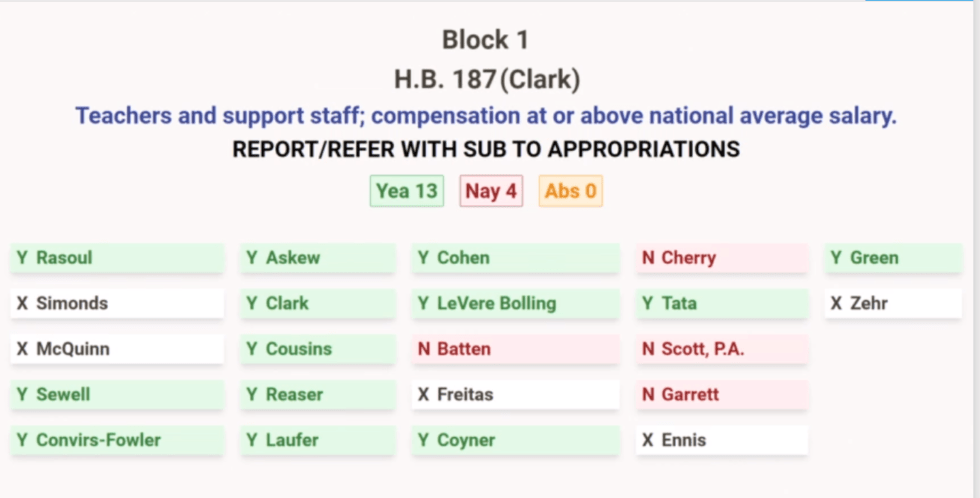
A bill that would bring pay for Virginia’s public-school teachers in line with or above the national average is advancing through the General Assembly.
House Bill 187 and its companion, Senate Bill 104, were both reported out of committees this week and will be heard in the full chambers.
The bills state that, “Public school teachers shall be compensated at a rate that is competitive in order to attract and keep highly qualified teachers. As used in this section, ‘competitive’ means, at a minimum, at or above the national average teacher salary.”
Current law states that it is only “the goal” of the Commonwealth to pay teachers at a competitive rate.
The legislation would require biennial review of teacher compensation by the Department of Education, with results reported to the General Assembly, the Governor and the State Board of Education in odd-numbered years.
Teachers, instructional support positions and non-instructional support positions are included in the legislation and would receive annual increases until they are compensated at a rate that is at or above the respective national average by the 2028-29 school year.
The Senate’s education committee voted unanimously on January 11 to recommend the legislation.
The bill passed the House committee by a 16-to-5 vote on Wednesday. Among those voting against recommending the bill were Del. Phil Scott, who represents House District 63 which includes the western half of Spotsylvania County.
Scott told the Advance that he couldn’t support the bill because it did not specify what standard would be used against which to measure Virginia’s educator compensation.
“There are a bunch of different reports out there, some more current than others, with some organizations using outdated numbers,” Scott said. “It seems like this was just done haphazardly without any hard and fast data.”
“I’m not against helping get teachers what they deserve,” he continued. “But if we’re going to say ‘national average,’ what data point we’re talking about needs to be clearly defined.”
by Adele Uphaus
MANAGING EDITOR AND CORRESPONDENT





